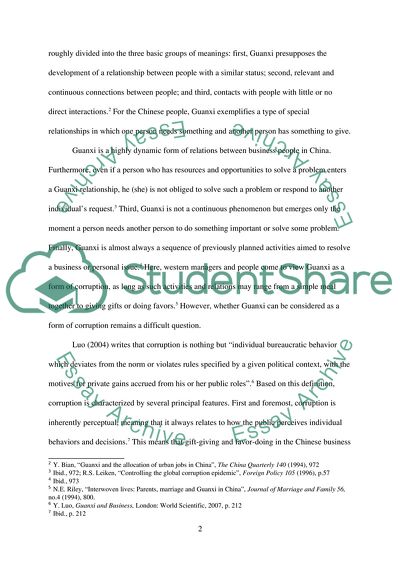Cite this document
(“The Bound between Corruption and Guanxi in the Chinese Society Coursework”, n.d.)
The Bound between Corruption and Guanxi in the Chinese Society Coursework. Retrieved from https://studentshare.org/social-science/1571354-exploring-china-research-essay-the-relationship-between-corruption-and-guanxi-in-chinas-society
The Bound between Corruption and Guanxi in the Chinese Society Coursework. Retrieved from https://studentshare.org/social-science/1571354-exploring-china-research-essay-the-relationship-between-corruption-and-guanxi-in-chinas-society
(The Bound Between Corruption and Guanxi in the Chinese Society Coursework)
The Bound Between Corruption and Guanxi in the Chinese Society Coursework. https://studentshare.org/social-science/1571354-exploring-china-research-essay-the-relationship-between-corruption-and-guanxi-in-chinas-society.
The Bound Between Corruption and Guanxi in the Chinese Society Coursework. https://studentshare.org/social-science/1571354-exploring-china-research-essay-the-relationship-between-corruption-and-guanxi-in-chinas-society.
“The Bound Between Corruption and Guanxi in the Chinese Society Coursework”, n.d. https://studentshare.org/social-science/1571354-exploring-china-research-essay-the-relationship-between-corruption-and-guanxi-in-chinas-society.


